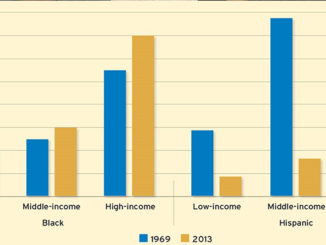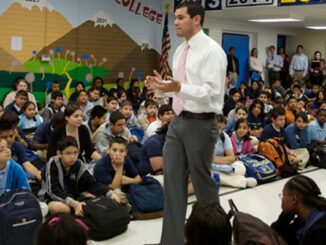
Prominent 2020 presidential candidates have unveiled policy platforms that include plans for, and investments in, early childhood education. It is encouraging to see early learning—an important industry and issue that too often gets dismissed as “babysitting”—receiving a boost from presidential politics.
Recently, Nobel Prize winning economist and professor James Heckman released new research about the significant intergenerational benefits of high-quality pre-k education. It found that early childhood education strengthened participants’ social and emotional development, as well as benefited families, with the potential to help break the cycle of poverty. Heckman’s work has also found that every dollar spent on high-quality, birth-to-five programs for disadvantaged children delivers a 13 percent annual return on investment. For working parents with access to high-quality child care, the additional wages earned paid for the cost of the program after five years.
We have learned much in the past 15 years from the research on childhood development. Neuroscience supports the importance of high-quality child care and early learning. In fact, brain development occurs most rapidly from birth through age three, and adult interactions as well as genes help shape the developing brain. Research tells us that a child’s brain undergoes an amazing period of development during this period, producing more than a million neural connections each second.
Early brain wiring sets either a strong or weak foundation for all future learning (e.g., social, emotional, cognitive, and physical development). This includes those all-important critical thinking, interpersonal, and teamwork abilities described as “employability or executive function skills,” which are greatly valued in the workplace and necessary for lifelong success.
High-quality child care depends on a high-quality workforce to ensure children start school ready to learn. Every week in this country there are 15 million children in paid child care. Given these statistics and what we know from science, it is essential that the child care workforce has the knowledge and competencies to support healthy child development. Despite early learning educators’ vital and remarkable role, child care providers in the U.S.—of whom 97 percent are women—do not receive sufficient professional development support. Sadly, policymakers and the general public have little understanding of the importance of their role and the challenges they face.
Child care workers are often under-educated and earn low pay. Studies have shown a relatively low level of college degrees among early childhood education teachers and caregivers—only about 11 percent with an associate degree and 25 percent with a bachelor’s degree or higher. With an average annual salary of approximately $22,000 with little or no benefits, they are often in need of help from public assistance programs.
The nation is struggling with how to recruit for this incredibly important job role and retain these educators in a way that not only recognizes their central, often hidden, contribution in support of working families and the economy, but also trains them appropriately and provides a living wage.
I once heard a description of child care professionals as “the workforce that supports of all workforces.” Indeed, early educators not only pave the way for our children’s success, they also contribute to the increase in labor force participation as well as to state and local economic growth.
The impact of our nation’s early childhood education depends on the quality of early learning educators. These issues merit thoughtful discussion by presidential candidates as well as governors and legislators across the country. The good news is that the conversations have started, and we need those who want to be the next president to help drive it forward. Our country’s children—our future workforce—and our collective economic prosperity depend on it.



